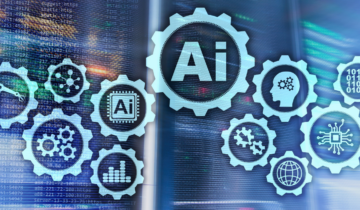
 Back
Back
Webinar wrap-up! AI and the Future of Learning: Key Factors for Success

On 19th of September 2024, the Artificial Intelligence Skills Alliance (ARISA) organized the AI and the Future of Learning: Key Factors for Success webinar, bringing together educators, industry experts, and members of the ARISA community to explore the transformative potential of artificial intelligence (AI) in the educational landscape. The discussion highlighted critical insights on ethical considerations, the integration of AI into learning environments, and the evolving roles of educators and institutions. Here are some highlights of the fireside chat on Using AI to enhance, and not replace, learning
Understanding the ethical framework
Mr Daniel Burgos, Vice Rector at the International University of La Rioja, who introduced the university’s recent Declaration for Ethical Use of Artificial Intelligence in Higher Education. He noted that while AI is a popular buzzword, its integration raises significant ethical challenges. The declaration was developed through a collaborative discussion among stakeholders in the academic community, focusing on principles like transparency, traceability, and ethics—essentially, “being a good kid” in the digital age.
The role of AI in learning content development
Next, Mr Paul Aertsen from Global Knowledge discussed the current limited influence of AI in formal education and the need for critical thinking skills among students. He highlighted the importance of personalized learning paths, particularly in private educational institutions experimenting with AI technologies. He emphasized that while AI tools can enhance learning, it is essential for educators to maintain control over the learning process, guiding students on how to use these technologies effectively rather than discouraging their use outright.
AI in workforce development
Mr Magí Lluch-Ariet from EIT Health shared his perspective on AI’s role in driving personalized learning within companies, especially startups. He pointed out that many organizations lack formal methodologies to identify specific skills needed for their workforce. AI can aid in this process by normalizing terminology and clustering companies with similar competencies, ultimately guiding training and development efforts.
Challenges for educators
As the discussion unfolded, it became clear that educators face several challenges in integrating AI into their teaching practices. A common theme was the anxiety among teachers regarding the rapid pace of technological advancement. The speakers noted that institutions must provide consistent support and resources to help educators navigate these changes.
Teachers need frameworks that promote confidence in using AI tools, alongside practical guidelines that align with pedagogical goals. Institutions should also prioritize professional development, ensuring that educators have the time and resources to integrate AI meaningfully into their curricula.
Future directions for AI in education
The webinar concluded with a forward-looking discussion on the continuous learning opportunities for diverse learners. Mr Lluch-Ariet envisioned a future where AI provides real-time, personalized training recommendations based on an individual’s skills and organizational objectives. This approach would allow for more dynamic workforce development, aligned with market needs and individual aspirations.
For the second part of the webinar, participants engaged in an interactive Miro session designed to gather insights and best practices aligned with the strategic objectives of the AI Skills Strategy developed in the ARISSA project. The session aimed to explore local experiences, initiatives, opportunities, and challenges that educational institutions and companies face when using AI for learning. The 15-minute session generated a range of contributions. Best practices included organizing focus groups with companies to identify relevant roles and providing workshops for educators to showcase AI’s capabilities. Challenges raised included the rapid evolution of AI tools, data management issues, and difficulties in stakeholder engagement due to siloed work environments. There were also concerns about accessibility for all learners, particularly older workers who may feel less comfortable with AI technologies.
The AI and the Future of Learning webinar underscored the importance of balancing technology with human-centered teaching practices. As AI continues to evolve, educators and institutions must collaboratively address ethical considerations, develop robust frameworks for AI integration, and prioritize the needs of both students and teachers.
Missed the webinar? Watch the recording below!
Other interesting news

AI Skills Strategy for Europe Launch: Watch the Highlights
31 May 2024
The ARISA project proposes a new strategy to answer the increasing demand for AI skills and professionals in the EU. Watch the highlights of our launch event on 28 May 2024.

AI Summer Picks: Books, Podcasts & Channels
16 July 2024
Do you want to broaden your AI horizons this summer? Whether you're searching for an inspiring beach read or an engaging podcast for your train journey, we've got you covered. Check out our top picks!

The Increase in Everyday Efficiency in Various Industries with the Use of AI
9 August 2024
In the modern era, Artificial Intelligence (AI) has emerged as a transformative force across various industries, driving efficiency and innovation. While AI can seem intimidating due to its rapid advancements and potential implications, there is also tremendous potential for positive change. From healthcare to finance, AI’s integration into daily operations is not just enhancing productivity but also reshaping the future of work. This article explores the significant impact of AI on everyday efficiency in several sectors.